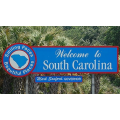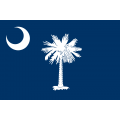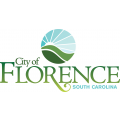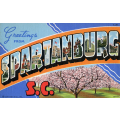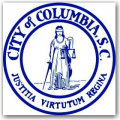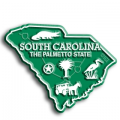A licensed practical nurse (LPN) provides basic patient care and can perform all of the duties within the scope of a certified nursing assistant. However, an LPN also fills a number of more advanced healthcare roles. For example, LPNs often insert and remove catheters, dress wounds, insert feeding tubes, administer medicine, give injections, and start intravenous drips. The exact responsibilities of an LPN vary somewhat by state and training.
Certification
South Carolina
We've organized a comprehensive list of South Carolina nursing schools. Below you'll find information on specific nursing programs such as LPN certificates and ADN, BSN, and MSN degrees. You'll also find a profile of nursing education and careers in each major South Carolina city.
South Carolina nursing programs and careers
City-specific information
The job market for nurses is promising in the coming years, particularly in South Carolina which is projected to experience a 24% nursing staff shortage according to the U.S. Bureau of Labor Statistics (BLS). For those looking to capitalize on this shortage and pursue a fulfilling career in nursing, several potential roles are profiled below in order of increasing seniority, educational requirements, and compensation.
A successful nursing career in Florence, South Carolina, starts with a degree, diploma, or certificate from an accredited school. Fortunately, Florence is home to several schools that collectively offer a broad range of nursing programs. A good example is Francis Marion University. The school offers a bachelor of science in nursing (BSN) and a master of science in nursing (MSN) with nurse educator and family nurse practitioner specializations. The school also has nursing programs for veterans and those seeking a second baccalaureate degree.
The city of Spartanburg employs nearly 5,000 nurses at major healthcare providers like Spartanburg Regional Medical Center and Mary Black Health System. It is important for aspiring nurses to understand the variety of nursing roles available and how each differs in education, responsibility, and salary. We outline below the three primary nursing roles.
Certified nursing assistant
As baby boomers age and technology expands the reaches of healthcare, nursing is one of the country’s fastest-growing occupations. According to the Bureau of Labor Statistics, South Carolina will experience a 24% nursing staff shortage in the near future. This shortage will be strongly felt in the Myrtle Beach / Conway area, which already employs nearly 3,000 nurses at local facilities like Grand Strand Regional Medical Center and the Department of Veterans Affairs. We describe below the nursing roles and educational routes available in Myrtle Beach, Conway, and the surrounding area.
With an estimated 24% staff shortage in the near future, South Carolina’s job market for prospective nurses looks promising. This is particularly true for the city of Greenville. Ranked as one of the “Top 10 Fastest-Growing Cities in the U.S.,” Greenville has also been recognized as the “Third-Strongest Job Market” and one of the best cities for young professionals by national publications like CNN Money, Bloomberg, and Forbes. Greenville employs over 11,000 nurses, a number expected to grow rapidly.
South Carolina’s nursing job market is on the rise, with a projected 24% nursing staff shortage over the next few years. As the largest city in South Carolina, Columbia employs nearly 20% of the state’s nurses at major local employers like the Department of Veterans Affairs, Palmetto Health Richland, and Providence Hospital. Before considering a nursing career, it is important to understand the roles available and the education and responsibilities each requires.
Certified nursing assistant
According to the Bureau of Labor Statistics, South Carolina is expected to face a 24% nursing staff shortage over the next few years. Charleston, one of the largest cities in South Carolina, will be particularly hard hit by this nursing shortage. Charleston is home to approximately 20% of the state’s nurses, with major local employers like the Department of Veterans Affairs and Trident Medical Center. The promising job market makes this the ideal time for aspiring nurses to launch their careers. We outline below the three primary nursing roles.
A master of science in nursing (MSN) program offers registered nurses (RNs) the opportunity to further their careers in specialized fields like nursing administration, nursing education, and family practice nursing. The master’s degree program typically requires two to three years of full-time study. It builds upon the knowledge and skills a registered nurse has gained through baccalaureate education and the workplace.
In the coming years, nurses will shoulder the healthcare burden of caring for an aging population and keeping pace with rapid technological advancements. While a two-year associate’s degree is sufficient for most entry-level registered nurse (RN) positions, there is a growing employer preference for RNs prepared at the baccalaureate level. A bachelor of science in nursing (BSN) opens opportunities for career advancement and higher salary.
An associate’s degree in nursing (ADN) is the most common method for entering the nursing profession. According to the Health Resources and Services Administration, over 45% of all nurses in the U.S. initially obtained an associate’s degree. The ADN programs in South Carolina are designed to prepare students with the skills and knowledge to become a registered nurse (RN).
Benefits of the ADN pathway

